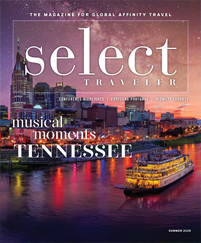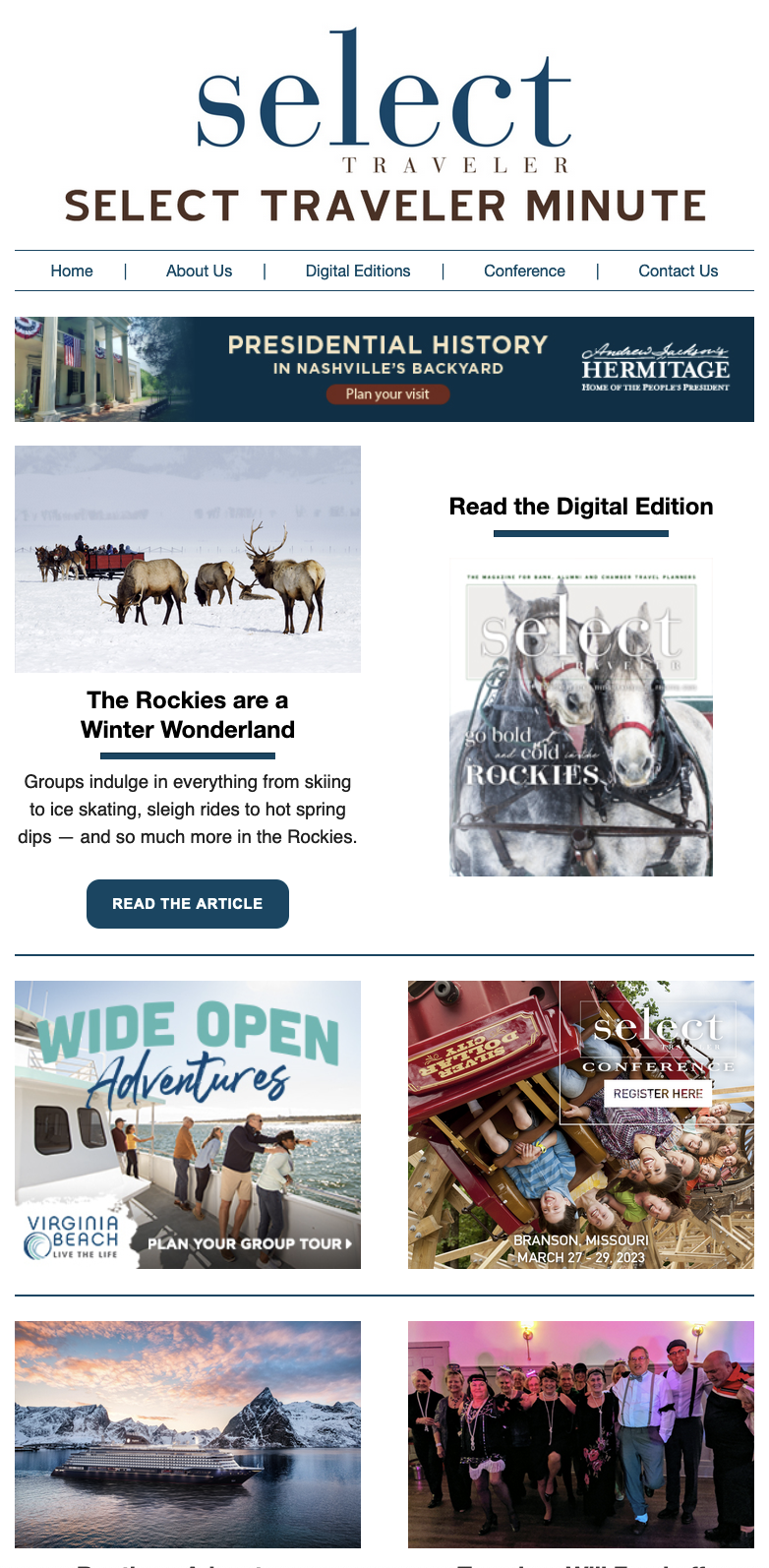As anyone in the business will tell you, planning group travel involves a serious amount of organization and time. Whether it’s an immersive tour of the Spanish countryside or a domestic excursion a short drive away, the forethought and follow-through involved is extensive.
So why go through all the headaches for a loyalty travel program?
Numerous alumni associations, banks and chambers of commerce have developed successful loyalty travel programs to strengthen and grow their brand and the organizations as a whole. Instead of treating your travel program like an afterthought, realize the program’s full potential to build loyalty and further the mission of your organization.
Word-of-Mouth Advertising
Kimberly Dockery, vice president and Silver Spirit director at Merchants Bank of Alabama, has tried all sorts of promotions for her travel club. Time and again, the most effective source of advertising has been other customers.
Those customers talk about the travel club not only to other bank members who could sign up for trips, but also to non-bank members who might consider switching banks for the added travel bonus.
The potential growth in business makes it worthwhile for Dockery to pour time and resources into ensuring that the quality customer service the bank offers is reflected in the travel club.
“I’m also their private banker, as well as planning the travel part,” said Dockery. “They only deal with me, so if something happens to them, they know me already. Once they get hooked on our customer service, the travel is just an added benefit.”
Similarly, Carolyn Grieve, business development and adventure coordinator for Arvest Bank Benton County, uses every tool she can to stay top of mind with her travelers so they will be advocates for the bank and travel club. To this end, she created “brag books” she sends to passengers after tours with photos, traveler contact information and a chronicle of the trip’s activities.
Soon, she had a number of people call to say they had seen a neighbor or a friend’s brag book and wanted to know more.
“You offer travel programs to your customers for your customers for a reason,” said Grieve. “You want them to remember your bank and talk highly about your bank.”
Nurture Loyalty
Instead of simply hitting up alumni to donate money, Vanderbilt University uses a more roundabout way of encouraging generosity: travel. Cary Allyn, director of the Vanderbilt Travel Program, knows that developing loyalty to their organization through travel will convince members to donate far more quickly than a cold call.
“Loyalty is why they are traveling with us instead of a travel agent,” said Allyn. “It doesn’t matter the age of the people on the trip. Everyone has a common bond: an affinity to Vanderbilt. They are together talking about their college experiences and their favorite professors.”
To foster this loyalty, Allyn strives to keep her trips as Vanderbilt focused as possible. She will often plan outings with other alumni or students living abroad for a fun way for passengers to reconnect with the college during the trip.
To strengthen ties to the university before the trip, Allyn answers calls from travelers rather than sending them to the tour operators. The one-on-one connection with the university is a large part of why the travel program continues.
Personalized gifts also help build loyalty, especially when the items relate to both the trip and the company, such as walking sticks with Vanderbilt’s logo for a trip to Alaska.
The affinity built from these trips can be what stops someone from switching banks or what prompts alumni members to reach into their pockets.
Mission Statements
Some loyalty programs use travel not only to attract new members and keep old ones, but also to promote their organizations’ mission statements. For example, many alumni associations were created not just to raise money for the college but also to further educate alumni.
That is why many alumni trips include accompanying professors or educational components.
Chambers of commerce also often use travel programs to further their missions, such as the Shawnee Chamber of Commerce (COC) in Kansas. Part of the chamber’s purpose involves enhancing the community through dynamic leadership.
“Giving people the opportunity to travel helps them understand the world, which in turn helps them become better leaders,” said Marlene Shirley, executive assistant at the Shawnee COC.
Webb Brown, CEO and president of the Montana COC, doesn’t use his chamber’s travel program solely as a reward or a fundraiser. Instead, Brown seeks to promote international trade through the tours, as well as raise funds.
“If people are traveling internationally, they start thinking, ‘Well, I could do business internationally, too,’” said Brown. “We learned early on not to sell it as a business trip. Don’t give people that idea.”
By mixing business and pleasure, the travel program both serves the chamber’s mission statement to encourage international travel to Montana and boosts member support for the organization as a whole.









